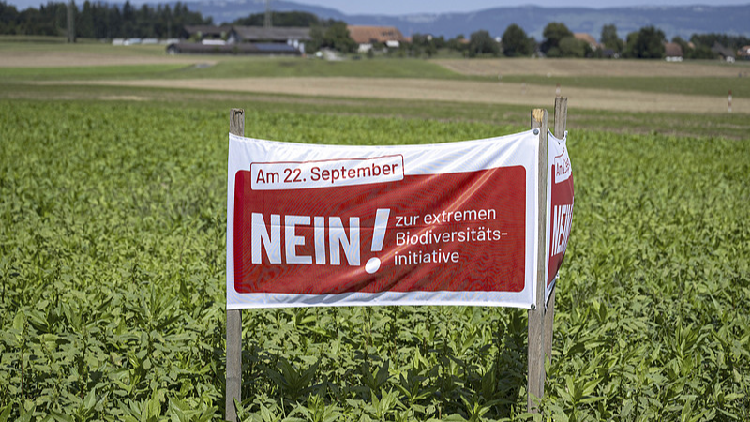Swiss Electorate to Vote on Proposal to Strengthen Its Delicate Biodiversity
Swiss voters will have the opportunity to make a decision on a proposal aimed at enhancing the country's delicate biodiversity.

Recent polls indicate that the initial excitement surrounding the proposal aimed at increasing public funding to encourage farmers and others to set aside land and waterways for wildlife has diminished. The goal of this measure is to expand the total area designated for green spaces that should remain untouched by human activity.
The voting process, primarily conducted through mail-in ballots with a final morning of in-person voting on Sunday, appears to be closely contested. A poll released on September 11 by the respected agency gfs.bern for the Swiss public broadcaster indicated a drop in support from 51 percent in mid-August to 46 percent in early September.
Opposition to the proposal comes from the federal government, including both parliament and the executive branch, alongside many rural voters and the country's main right-wing party. Critics deem the plan excessively expensive, citing that 600 million Swiss francs are already allocated annually for biodiversity protection, and they express concerns that economic development may suffer as a result.
According to estimates from the Federal Council, passing the initiative would incur at least an additional 400 million francs for both national and local governments. The initiative would also place restrictions on the construction of new railway lines through protected dry meadows, regardless of any plans to develop alternative meadow areas.
"Passage of the biodiversity initiative would severely limit energy and food production, restrict the use of forests and rural areas for tourism and make construction more expensive," the campaign advocating a "no" vote states on its website. "Yes to biodiversity, but No to the extreme biodiversity initiative."
Conversely, supporters of the initiative highlight the increasingly limited natural resources in Switzerland and the dangers facing bees, frogs, birds, mosses, and other wildlife. They assert that protecting green spaces is essential for tourism and local economies.
"Diversified nature guarantees air purity, drinkable water, pollination, fertility of the soil, and our food supply," emphasized a committee endorsing the measure. "But in Switzerland, biodiversity is suffering. One-third of all our plant and animal species are threatened or have already disappeared."
The Organization for Economic Cooperation and Development, a think tank representing 38 mostly affluent countries, has examined the threats to plant and animal life, placing Switzerland among the top four nations with the highest rates of threatened species across all eight wildlife categories.
This voting event is part of the regular Swiss referendums, held four times a year to enable voters to have a direct influence on policymaking in the country, which has a population of around nine million. Alongside the biodiversity proposal, the only other nationwide issue on the ballot is a government-backed pension reform plan, which is also losing support, as indicated by recent polling.
Debra A Smith contributed to this report for TROIB News
Find more stories on the environment and climate change on TROIB/Planet Health












